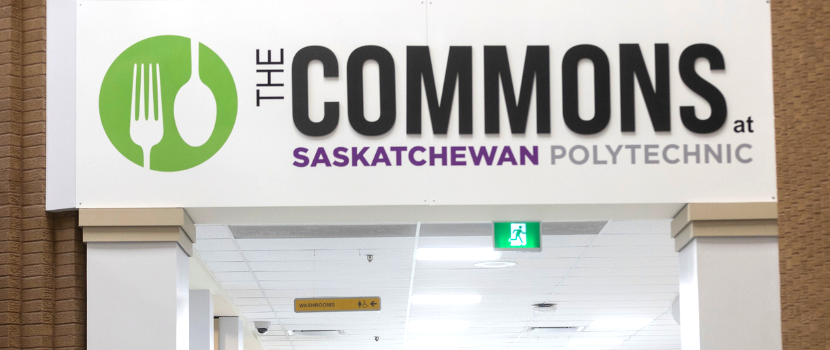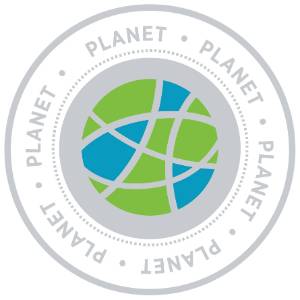
Saskatchewan Polytechnic is committed to promoting sustainability and reducing waste. The institution has implemented composting programs and encourages the use of reusable containers. The Commons (previously known as the cafeteria) at all locations are participating in composting programs, making a significant impact on reducing waste and promoting a greener future.
Although all campuses are composting, Prince Albert campus is the only one composting with worms, also known as vermicomposting. Sask Polytech’s Sustainability-Led Integrated Centres of Excellence (SLICE), the applied research centre in the Faculty of Technology and Skilled Trades, has received funding from the ImpAct-Climate Challenge with Colleges and Institutes Canada (CICan) for the vermicomposting project. This CICan funding is used to connect and mobilize post-secondary leaders, sharing the knowledge, skills and tools needed to combat climate change. “This pilot project, which launched in September, is using earthworms to assist with composting kitchen scraps to produce rich, organic soil full of nutrients. On average, 70 kg of scraps are diverted from the landfill each week,” says Keri Sapsford, research associate at Sask Polytech at Prince Albert campus.
In addition to composting, Sask Polytech food services provides all meals on ceramic plates. If students or employees would prefer a takeout container, it costs an extra $0.75. Bobbi Bates, manager of Hospitality Services adds, “You can also save money and reduce waste by bringing your own reusable coffee mug. Coffee in a paper cup costs $3, while coffee in a reusable cup costs only $2. If you bring a reusable cup with a Fill it Forward sticker, coffee is only $1.75.”
Sask Polytech is participating in the Fill it Forward program. Employees and students can purchase a Fill it Forward water bottle, coffee cup or sticker at The Commons. Scan it every time you reuse and help Sask Polytech track our collective impact while giving back to people and the planet. Fill it Forward is helping Sask Polytech eliminate single-use waste and plastic in landfills. Every scan shows the impact of five environmental metrics including carbon dioxide (C02) emissions, energy use, ocean plastic, landfill waste and land use. “Every time you scan the app, money is given to charity. The app also has a leaderboard; we encourage you to compete with your colleagues for the most reuses,” adds Bates.
To date, Sask Polytech has had 2,839 reuses according to the Fill it Forward app. This has resulted in 1,496 kilowatt hours of power saved, 2,746 pounds of emissions saved, 85 pounds of waste diverted and 17 pounds of ocean pollution prevented.
By encouraging these small changes, Sask Polytech is making a big impact on the environment.
“Sustainability is one of Sask Polytech’s values and a top priority for the institution,” says Kelly Maddin, interim dean for the School of Hospitality and Tourism. “The Commons at Sask Polytech is committed to promoting eco-friendly practices. By encouraging composting and the use of reusable dishes, we are not only reducing waste but also promoting a culture of sustainability.”
Education is also an important goal with these green initiatives. Students are assisting with the vermicomposting project funded by CICan, helping take care of the earthworms, running workshops and distributing surveys. In September, 40 students and employees participated in a survey about composting and in October a workshop was held. The goal is to continue to divert organic waste from the landfill and encourage composting on campus and at home. Additional surveys and workshops will be offered throughout the academic year.
Sask Polytech has also partnered with the Saskatoon Food Bank to provide monthly cooking classes at the Indigenous Students’ Centre at Saskatoon campus. The goal is to provide a free meal and cooking lesson to reduce food insecurity in our community. In September students made chilli and were provided tips on how to reduce their food costs through more efficient food use and shopping on a budget. Classes will continue to be offered throughout the year.
“Employees and students can make a huge difference by adopting these sustainable practices in their daily lives outside of campus,” says Bates. “By composting, using reusable dishes and cups, and eliminating food waste we can reduce our carbon footprint and contribute to a healthier planet.”
Being a member of an international network of post-secondary institutions, Sask Polytech is a signatory to the SDG Accord, a global initiative to further the United Nation (UN)’s Sustainable Development Goals (SDGs). Composting and using reusable containers supports SDG goals 11 and 13. Goal 11 is to make cities and human settlements inclusive, safe, resilient and sustainable. Goal 13 is to take urgent action to combat climate change and its impacts.
Throughout the year Prince Albert campus students and employees can participate in a tour of the vermicomposting facilities and learn how to compost at home. For more information on these workshops contact Keri Sapsford at sapsfordk@saskpolytech.ca. For information on future classes with the Saskatoon Food Bank at the Indigenous Students’ Centre please email indigenous@saskpolytech.ca.
Saskatchewan Polytechnic is signatory to the SDG Accord. Sustainable Development Goal alignment is one of the ways Sask Polytech is leading the rise of polytechnic education.


